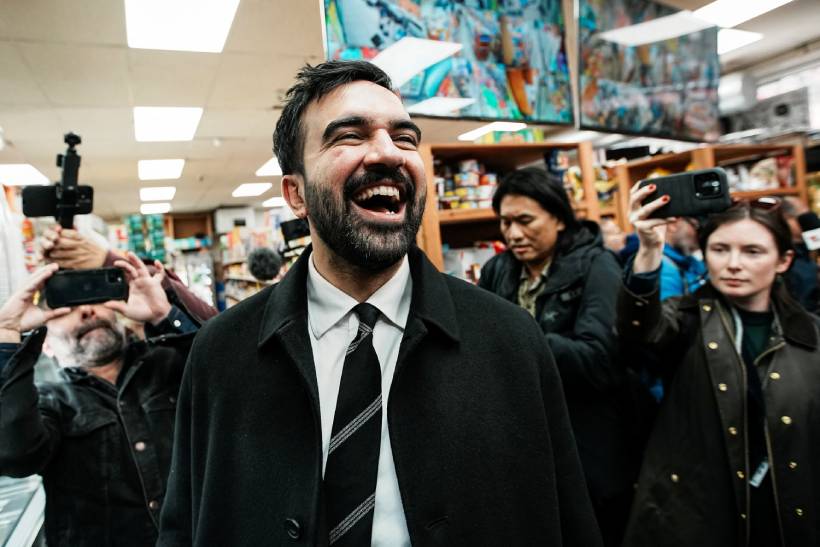The election of a Muslim mayor in New York, a city that has been a symbol of global pluralism, ushers in a new chapter in understanding identity politics in a major democracy. This phenomenon is important to study not only because he departs from a diaspora community that has been on the fringes of American politics for decades, but also because he is now at the forefront of sensitive issues such as the protection of LGBT rights. This leader not only carries a symbol of the success of Muslim immigrants, but also serves as a benchmark for whether religious identity is able to be in line with the equality agenda of sexual minorities.
The author argues that such leadership will succeed if it is able to make its identity a bridge of justice and inclusivity, not a barrier in public policy. To support this argument, this article will highlight three aspects: diaspora representation and identity politics, LGBT issues as a test of government inclusivity, and the challenges of coalitions and policy implementation that have a wide impact.
Diaspora Representation and Identity Politics
The victory of a Muslim in the mayoral position of New York shows that the diaspora community is beginning to gain a real space of representation in big-city politics. In the theory of minority representation, the presence of minority figures in public office is a form of political recognition for previously marginalized groups. The leader’s Islamic identity allows immigrant communities to feel seen and counted in policy-making.
However, identity politics is not always an advantage. Religious identity is often used by political opponents to create fear or suspicion. A Muslim diaspora leader must not only prove bureaucratic competence, but also have to fend off the stereotypes that have been attached to his community. Therefore, the legitimacy of his government must be built through inclusive performance and policies that are not limited to the interests of his home group.
Successful diaspora leaders are not just symbols of diversity, but those who are able to overcome stigma and connect their identities to a more universal agenda of justice. He must demonstrate that his experience as part of a minority group can lead to policies that are more sensitive to inequality, in the realm of access to jobs, municipal services, and legal protection for vulnerable citizens.
The LGBT Debate as a Test of Inclusivity
New York is known as a city that has a long history of fighting for LGBT rights. However, in many religious communities, including some Muslims, LGBT issues are often a sensitive point. When a Muslim mayor expresses support for LGBT protections, such as creating safe spaces, equal public services, and an umbrella of anti-discrimination policies, he is making a risky political move.
This raises a strategic question: Will religious identity stand in the way of a commitment to inclusivity? Or does the identity of the minority actually make the leader understand more about the importance of caring for the rights of other groups who are also discriminated against? The author argues that the leader has an opportunity to break down the false dichotomy that has been inherent in it: as if Muslims have always been at odds with the LGBT rights movement. By making justice for all a universal moral principle, it can enlarge its public legitimacy base.
If LGBT-friendly policies are successfully institutionalized in public services, then the leader’s Muslim identity will no longer only be a symbol of diversity, but also a motor of structural change. Muslim diaspora leaders can rewrite the narrative that religious diversity is not against human rights, in fact it can be a strong foothold to fight for it.
Coalition Challenges and Policy Realization
To govern effectively, the leader must embrace broad coalitions in a very diverse society: immigrant communities, working groups, traditional voters, and vocal LGBT communities. The challenge is not small: coalition building is vulnerable to being shaken by differences in values, especially when LGBT issues intersect with the moral conservatism of some citizens.
In addition, he still has to answer the typical problems of big cities: the housing crisis, the high cost of living, crime, and social inequality. A progressive identity will not be enough if it is not accompanied by real results on the ground. Failure to respond to structural problems can dwarf his credibility into mere symbolic leaders without the ability to transform.
Thus, the success of Muslim diaspora leaders is measured not only by their courage to take an inclusive stance, but also by their ability to balance priorities between symbol politics and the politics of basic societal needs. If he is able to ensure that every citizen feels protected and cared for, then he will lead on a solid and comprehensive basis of legitimacy.
Conclusion
The three arguments above, diaspora representation, the examination of inclusivity through LGBT issues, and the challenge of coalitions, have shown that the leadership of Muslim mayors in New York is an important intersection between identity and public policy. This phenomenon is not only the symbolic success of the Muslim community in achieving strategic positions, but also a test of whether religious values can coexist with the struggle for gender equality and sexual orientation.
The author considers that leadership that carries minority identities must be able to expand the scope of partisanship: from the original group to all city residents. If this leader succeeds in proving that social justice is a universal principle that transcends religious and ethnic lines, then he is not only a representative of the diaspora, he is a pioneer of cross-identity politics for the future of global cities.
Thus, the election of a Muslim mayor is not only an immigrant victory story, but a great opportunity to prove that multicultural urban democracy can thrive into a safe space for all identities. In the hands of the right leaders, the encounter between identity politics and LGBT issues will not be a source of conflict, but rather a foundation for broader and more humane justice.

